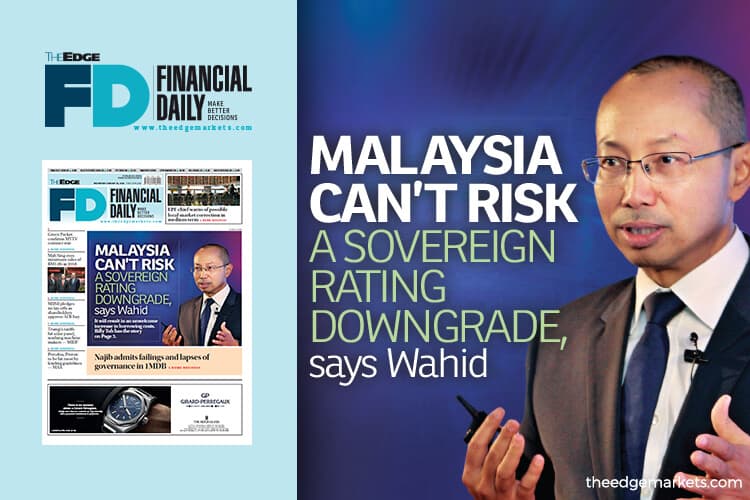
This article first appeared in The Edge Financial Daily on January 24, 2018
KUALA LUMPUR: The Malaysian government needs to remain disciplined in managing its finances, otherwise the country risks having its sovereign rating downgraded, said Permodalan Nasional Bhd (PNB) chairman Tan Sri Abdul Wahid Omar.
Abdul Wahid pointed out that any downgrade on the nation’s sovereign rating will result in an unwelcome increase in borrowing costs, which would weigh on corporate earnings and the economy.
“The strategies have always been to manage the economy to ensure sustainability. That is in terms of the credit rating,” he told reporters on the sidelines of Invest Malaysia 2018 yesterday.
“If we don’t manage our finances well, we risk being downgraded in terms of our credit rating. At A-/A3, it has enabled Malaysia to borrow at reasonable levels. So, this is very important,” he said.
Standard & Poor’s (S&P) credit rating for Malaysia stood at A-, with a stable outlook. Similarly, Fitch’s credit rating for Malaysia was also reported at A- with a stable outlook, while Moody’s credit rating for Malaysia was last set at A3 with a stable outlook.
“If our credit rating were downgraded, our costs of borrowings would have gone up. That’s something which must be averted. It’s a holistic package — the macroeconomy, the monetary policy, the fiscal policy, and of course the performance of the corporate sector, which is also very important,” said Abdul Wahid.
The government’s efforts to diversify the income base by reducing the dependency on natural resources, such as the oil and gas industry, as well as the plantation sector, has helped keep Malaysia’s economy resilient, according to Abdul Wahid.
He noted these were tough but necessary measures implemented for the country to move forward.
With the global economic recovery gaining pace in the past one year, it has benefited the Malaysian economy and the capital market, said Abdul Wahid.
For 2018, he noted the numbers have been good so far in January and expectation is that the momentum will continue.
“We hope the corporate sector will do well in 2018, [with companies] enhancing their revenues, optimising their costs, generating better earnings and with that, paying more dividends to shareholders. This includes PNB, which will benefit the 13.2 million unitholders that we have.”
On the ringgit, Abdul Wahid is hopeful it will remain strong due to its fundamentals, pointing to an increase in the current account surplus as a percentage to the gross domestic product in 2017, as well as positive investment flows.